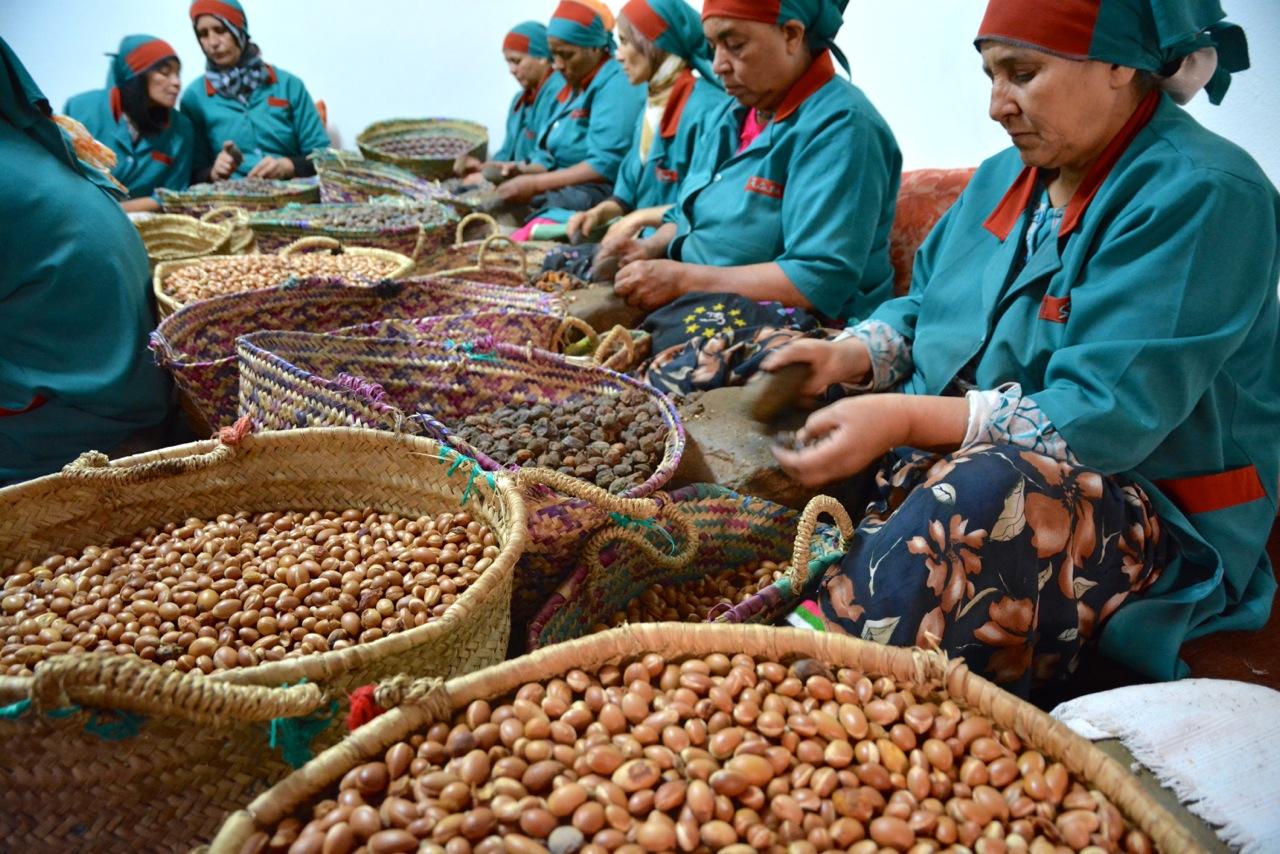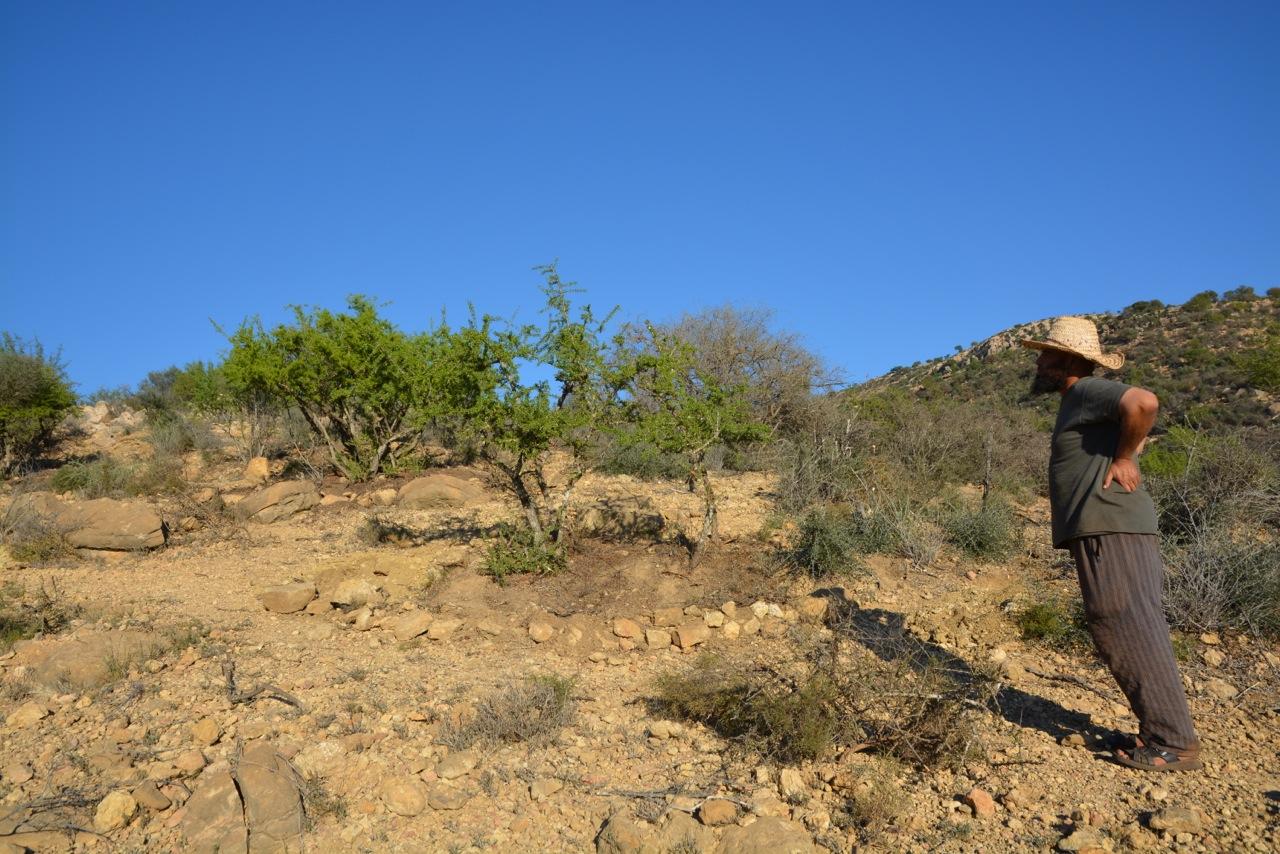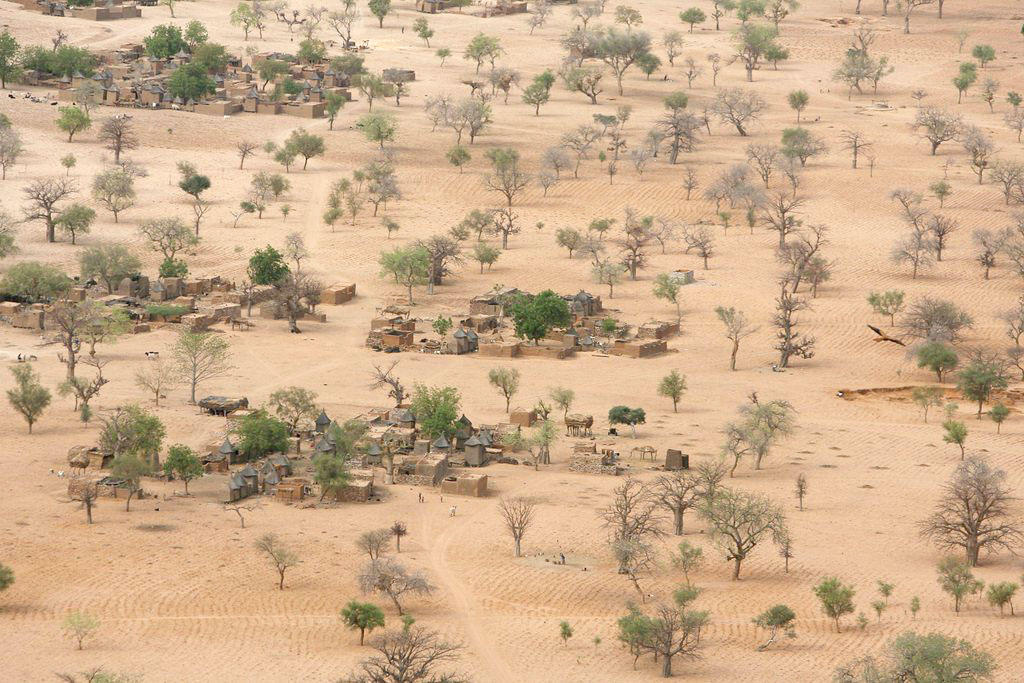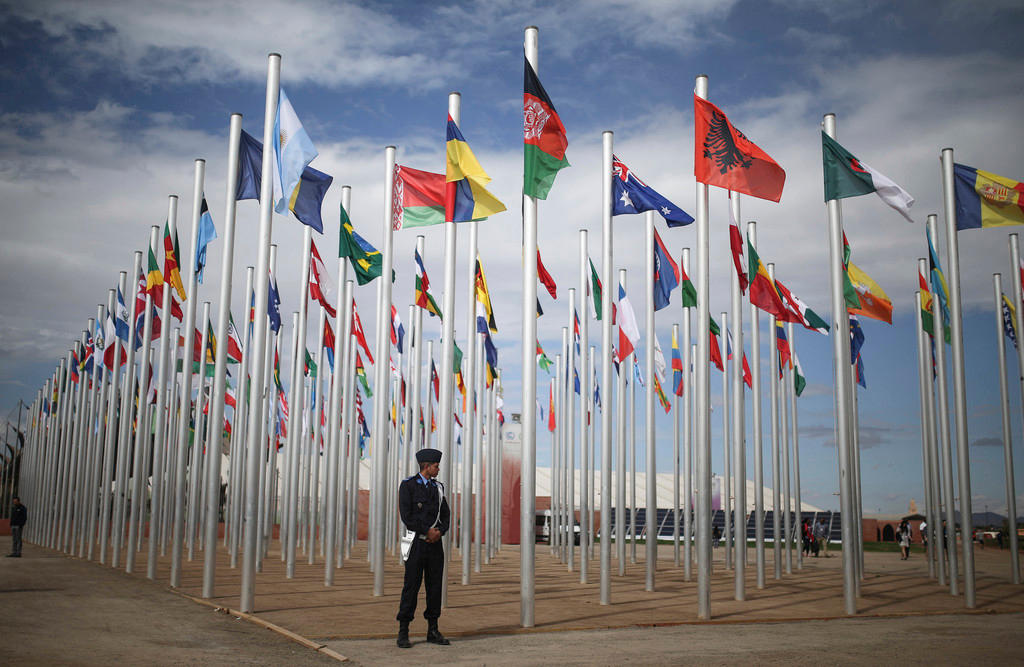How Berber women are fighting desertification

The sale of oil from a drought-resistant tree has become a lifeline for a group of Berber women in Morocco. Protecting the tree to harvest the oil is also helping defend their village from the ravages of climate change.
“Nadia is a fighter,” I’m warned as I’m driven up to a mountain village above the seaside resort of Agadir. I’m on my way to meet the person spearheading the project to protect the argan tree while supporting local Berber women.
Nadia Fatmi, who moved to this community at the edge of the desert to join her husband, founded in 2007 the cooperative, Coopérative Tighanimine FilahiaExternal link, to aid these women living on the frontline of climate change.
In Tighanimine, like many other poor communities in Morocco, desertification has been a growing threat – indigenous trees are used for firewood and the city of Agadir continues to encroach on vulnerable green areas.
Many families who had lived there for generations have left as a result of climate change, with crops becoming more difficult to grow and wells going dry.
Paradise lost
“We have seen lots of changes here,” Fatmi explains. “When I first came in 1997, it was like a paradise, there were flowers and trees right down to the river. There were loads of houses. But everything has changed. It gets very hot and there is less rain.”
The cooperative, which employs 68 women, produces argan oil from trees native only to this region in southwestern Morocco. The argan tree is known for its high resistance to droughts, which have become more frequent here at the edge of the world’s largest desert.
Many of the trees had been neglected or were dying before the launch of the cooperative.

Production of the oil – which used to be made only for family consumption – has since boomed. Sales in Europe and North America by the group were up from 60,000 ($6,000) Moroccan dirhams to more than two million ($200,000) last year. Cosmetic firms Aveda, L’Oréal and the Body Shop purchase the ingredient for make-ups and lotions.
Zoubida Charrouf, head of an association that helps the cooperativeExternal link connect with foreign buyers, said the women’s group plays an important social, economic and environmental role for the community.
Local knowledge
“We considered how the local knowledge could be highlighted,” he says, adding that the tree cannot be protected with arguments about desertification and climate change alone.
The women, who before joining the cooperative were prohibited from working by their husbands, or had been marginalised as widows or divorced women, have since been able to make enough money to improve their lives and those of their children, who now attend school.
Cooperative director Fatmi also introduced a literacy programme and introduced family planning, allowing women to limit the sizes of their families.
Said Gharby an agronomist, who has worked with the community through his argan tree research, described as a ‘revolution’ the social and economic changes that have come about since the cooperative was founded.
Many of the women proudly showed me the renovations to their homes they had been able to pay for with their earnings.
Economic interest
“People now understand that there is an economic interest in maintaining and planting the trees,” Charouff says.
“We have to protect the trees. If we don’t protect them, there will be no work outside of the home for the women,” the cooperative’s founder adds.
Switzerland has provided financial support for the bottling of the oil, and in a separate planExternal link, funded the reforestation and maintenance of argan forests in nearby regions.
The women’s argan project in Tighanimine is one of 103 initiatives presented in the Climate InitiativesExternal link,External link a competition developed for the climate conferenceExternal link (COP22) now underway in Marrakech to encourage social entrepreneurs in French-speaking Africa.
Within the framework of Switzerland’s support for youth and French-speaking Africa at COP22, Environment Minister Doris Leuthard is expected to present awards this Thursday to the frontrunners. Swiss financial assistance will be offered to three laureates to promote their projects at scale.
Benjamin Frey, cooperation advisor at the Swiss embassy in Rabat, explained that in Northern Africa the Swiss government supports best practices in agriculture to avoid land degradation in areas vulnerable to desertification.
The big political picture
Taking steps to adapt to climate change, such as reforestation of areas at risk like those of western Morocco, is part of a wider discussion at the United Nations climate change talks.
After last year’s signing of the Paris Treaty, delegates at the COP22 began deliberations to resolve many of the details for the treaty’s application after 2020. Discussions, expected to be finalized in 2018, include finding a balance in financial support for climate adaption and mitigation programmes.
Developing countries are already reporting an adaptation finance gap, with costs for adjusting to the effects of climate change expected to be two of three times higher than international public finance for this crucial area.
What sort of future?
Meanwhile on the ground in Tighanimine, Fatmi and cooperative members try to remain hopeful about the project.
But Fatmi’s combative support for women in this village may eventually be hindered by inevitable environmental challenges.
When asked about how weather could evolve in the future, she said rising temperatures could make things more difficult.
“Maybe there will be no future. If we have no water, we cannot stay. There is no life.”
Argan oil
Argan trees, which used to grow throughout North Africa, have very long water-seeking roots, making them particularly resistant to dry conditions.
Oil is extracted from the nuts that grow on the trees and is used for cosmetics and nutritional purposes. Ninety per cent of the cooperative’s production is exported to Europe and North America, where it is used mostly in beauty products.
The cooperative’s production has been certified by Max Havelaar Germany and Fair Trade, on the condition that part of the profits go to the protection of trees owned by the cooperative’s members.
Regional and global warming
In September a study by the German Max Planck Institute https://www.mpg.de/10481936/climate-change-middle-east-north-africaExternal link said much of North Africa and the Middle East will become uninhabitable in the course of the century with maximum temperatures that could reach 50 degrees Celsius during the day.
The report warned that the global goal set by the Paris Treaty on climate change of limiting global warning to below two degrees Celsius “will not be sufficient to prevent this scenario”.

In compliance with the JTI standards
More: SWI swissinfo.ch certified by the Journalism Trust Initiative










You can find an overview of ongoing debates with our journalists here . Please join us!
If you want to start a conversation about a topic raised in this article or want to report factual errors, email us at english@swissinfo.ch.